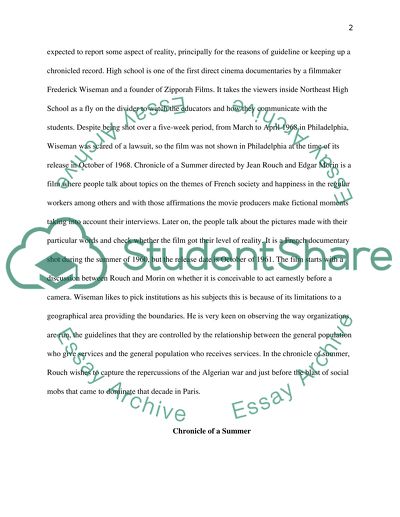Cite this document
(“High School and Chronicle of a Summer Film Essay”, n.d.)
High School and Chronicle of a Summer Film Essay. Retrieved from https://studentshare.org/visual-arts-film-studies/1701778-high-school-and-chronicle-of-a-summer-film
High School and Chronicle of a Summer Film Essay. Retrieved from https://studentshare.org/visual-arts-film-studies/1701778-high-school-and-chronicle-of-a-summer-film
(High School and Chronicle of a Summer Film Essay)
High School and Chronicle of a Summer Film Essay. https://studentshare.org/visual-arts-film-studies/1701778-high-school-and-chronicle-of-a-summer-film.
High School and Chronicle of a Summer Film Essay. https://studentshare.org/visual-arts-film-studies/1701778-high-school-and-chronicle-of-a-summer-film.
“High School and Chronicle of a Summer Film Essay”, n.d. https://studentshare.org/visual-arts-film-studies/1701778-high-school-and-chronicle-of-a-summer-film.


